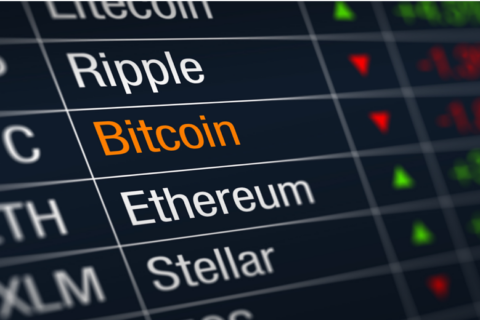Contents
One of the most common questions new traders are likely to ask is, “what is the best forex trading strategy?” Immediately, this question appears to be quite loaded. There is no forex trading strategy that can universally be considered to be “the best.” Rather, the forex trading strategy that makes the most sense for you will depend on your risk tolerance, your trading constraints (and preferences), and your long-term trading objectives.
In other words, trading strategies are typically very personal. You can check out guides by professional traders, such as Trading Strategy Guides.If you have never traded before and are hoping to apply a strategy for the very first time, it is a good idea to begin some with paper trading (using a platform such as MetaTrader4) and see if how your strategy actually plays out in practice. Additionally, it will be very beneficial to see how your trading strategy would have performed in the past using a practice known as backtesting.
“Backtesting” is a term used to describe the practice of testing a quantifiable trading strategy against the historical record. Suppose someone were to decide to convert USD to GBP every Tuesday morning and then convert the GBP back to USD every Thursday afternoon. Now, this may seem rather arbitrary, but would this strategy actually work in practice? At first glance, it would be impossible to tell. With effective backtesting, traders could see how this strategy would have performed if it had been applied over a certain period of time.
Trading strategies that would have been historically successful would likely also be successful in the status quo, however, it is important to remember that past success can never fully guarantee any future outcomes. The future will always remain uncertain. Still, it is clear that backtesting can be very useful. Below, we will discuss the most important things to know about backtesting and how backtesting can affect your forex trading strategy. Before engaging in spread betting, it’s essential to carefully read and understand the terms and conditions, fees, and margin requirements set by the provider.
How can I backtest my forex trading strategy?
In order to backtest your forex trading strategy, you must begin by defining what your trading strategy actually is. Usually, this begins by identifying the key components of your trading strategy, including risk tolerance and trading parameters, markets and trading time frames, entry and exit triggers, and other important details.
Once these variables have been clearly identified and defined, you can begin manually backtesting by picking a point in time and applying your specific strategy. For simplicity purposes, suppose your trading strategy solely consists of exchanging USD and GBP. Choose a point in time, say January 1, 2010, and record the trades you would have made had you been applying your strategy from that specific point in time forward.
After ten trades, has your wealth increased or decreased? How about after 100 trades? If you do feel that your forex trading strategy might indeed be effective, choose another date and conduct this practice again. If the strategy truly is effective, it will be able to deliver results under multiple different market conditions, rather than just one.
There are also many different programs you can use to backtest trading strategies automatically, including MetaTrader4. This will help you save time and test your strategy using a wider range of situations. If you currently use a trading platform or trading simulator, see if there are any backtesting programs available.
What are the benefits of backtesting my forex trading strategy?
The main benefit of backtesting is that it helps ensure that the forex trading strategy you are using is sound, rather than just lucky. Someone could easily double their money over the course of the year and be convinced they are a trading savant, only to have their winnings lost over the following session. Truly effective forex trading strategies, however, will be able to consistently generate positive outcomes and be relied upon during many different market conditions.
Backtesting also gives traders an opportunity to leverage historical data to their advantage. The 2007-08 financial crisis, for example, produced large swaths of useful data that showed how certain markets move during times of economic uncertainty and recession. In 2020, when markets were once again volatile and retracting, traders could begin by testing their strategy against the earlier recession and then apply them (perhaps with some tweaks) to the new bear market.
Why is backtesting ideal for the forex marketplace?
Between 2001 and 2020, forex annual trading volumes experienced substantial growth, rising from $1.2 trillion to $6.6 trillion. The forex market experiences the highest level of trading volume of any market in the world. Furthermore, it can be accessed in nearly every country and can be accessed 24 hours per day.
The sheer volume of forex trading activity makes it perfect for backtesting because, invariably, traders simply have much more data available to work with. Furthermore, most major global currencies (USD, GBP, EUR, JPY, etc.) also trade within a somewhat definable range. Traders know that the probability of any of these currencies collapsing overnight is virtually zero. Using historic data, channel indicators (such as Bollinger Bands), and other trading tools help make these markets remarkably easier to navigate than, say, the stock market.
What are the limitations of backtesting?
Of course, there is no denying that backtesting does of course have some limitations. Past data and future price action are clearly strongly correlated, but there are countless historic examples of currencies behaving in an unpredictable way.
All speculative trading, by definition, carries with it at least some degree of risk. While backtesting does illustrate the possible effectiveness of a particular forex trading strategy, it cannot stop this risk from existing altogether. But as long as you can understand the limits of backtesting and take active measures to mitigate risk, choosing to backtest your approach to the market can still be very beneficial.
Trading is something that will also involve the element of the unknown. By controlling the unknowns and taking advantage of the information you do have, you will eventually be able to improve your trading outcomes.



